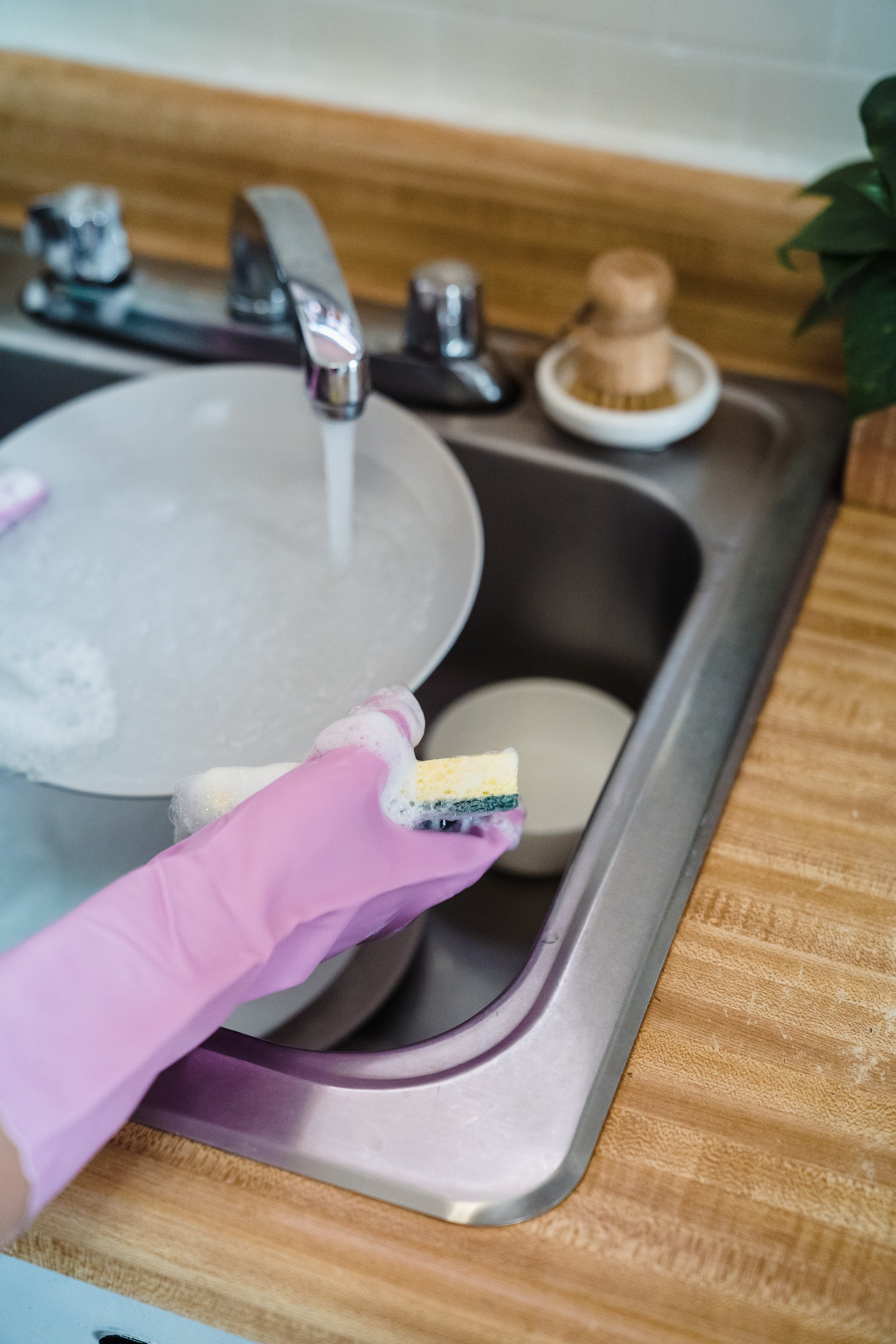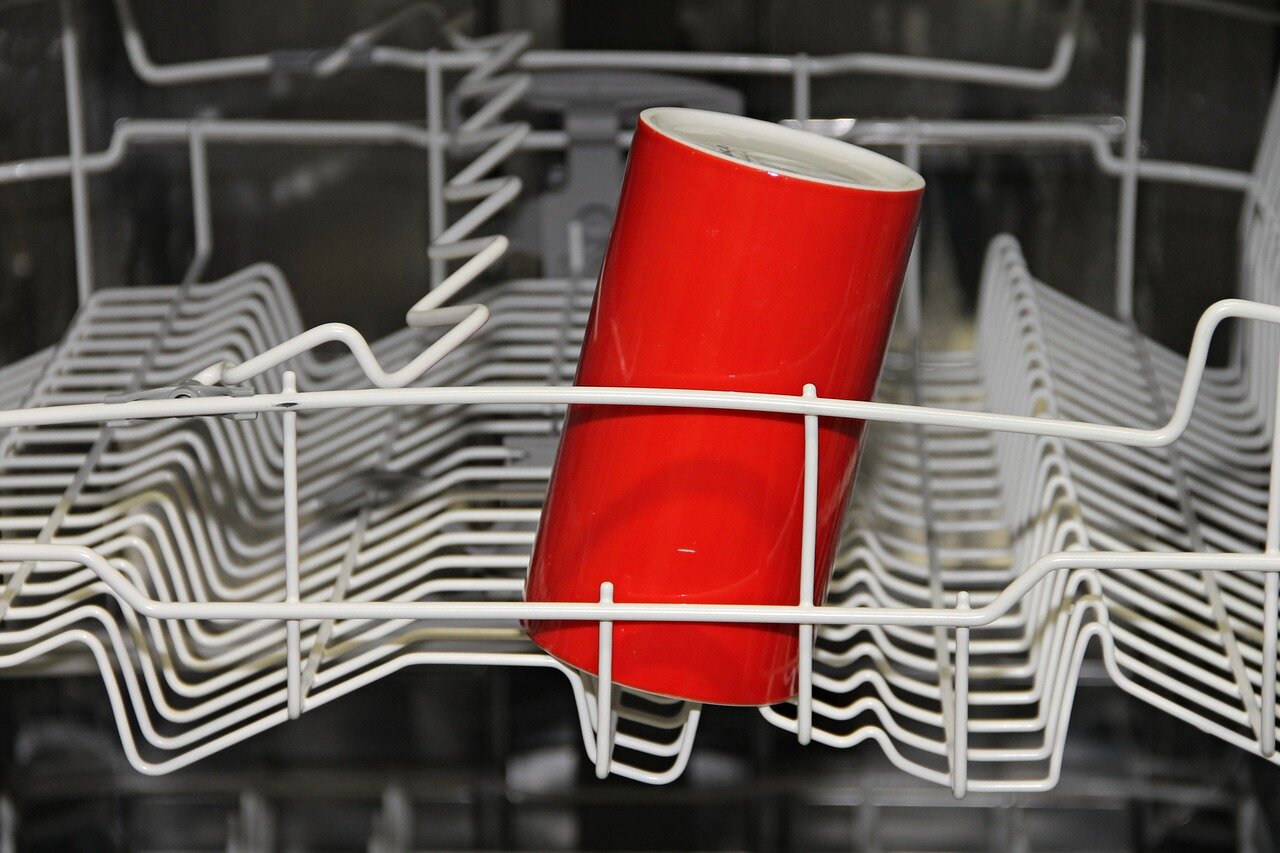How Dishwasher Manufacturers Finally Cracked The Code
Another night another load of dishes to do. Even if it's just for yourself, you have dishes you ate from as well as whatever you used to make your meals that day. Many of us hate doing dishes, but your options are either do dishes or end up growing science experiments in your kitchen. Which is why we invented dishwashers, to make the job that little bit easier.
Unfortunately, for a very long time, you actually spent more money and time by having a dishwasher than by not having one. You had to pre-wash your dishes before you could use the dishwasher. And then the dishwasher used even more water than you did during that pre-wash. With today's energy-efficient dishwashers though, that's no longer the case.
Many of today's dishwashers have a water-saving feature built in. This means that not only are they using less water and shrinking your electric and water bills, but they're still getting your dishes completely clean. Instead of having to pre-wash your dishes, most dishwasher manufacturers, including whirlpool, advise against doing this. Pre-washing your dishes will actually make the dishwasher less effective because today's modern dishwasher detergents have enzymes in them that are intended to eat that food away.
So that's how a modern dishwasher works. What the heck does that have to do with it saving water though? How does the dishwasher use less?
A water-saving dishwasher will only use approximately 4 gallons of water per cycle. It achieves this by running the water through a filtration system during the wash cycle. By rinsing the dishes and then running the water through a filtration system, you maximize the washing power of a single load without wasting water. Not only does the filtration system catch the food debris, but it also filters out the soap from the wash cycle in order to rinse the dishes.
How does it stack up, then?
Proctor and Gamble's Cascade recently did a study paired with Marie Claire showing that consumers use almost 7x the amount of water that a water-efficient dishwasher will. And the reason is the sink faucet. For every minute that you have your faucet running, you are using approximately 2 gallons of water. While this will vary from household to household, this is on average. The same study also found that the average American takes about 15 seconds to wash a dish. Compare that baseline to your average modern Energy STAR-certified dishwasher which only uses 4 gallons total for a load of dishes. Even if you run your dishwasher every other night, you're still using half the amount of water that you do when washing by hand in a single night.
What options do you have for a modern dishwasher?
Although we have covered Energy Star dishwashers in the past, here are three selections that are new to the market and offer the best in both efficiency and cleanliness.
This washer offers some of the best performance on the market as of the time of writing, The Miele uses only 626 gallons of water per year and runs fat a very efficient pace to get your dishes done. Not only does this help your water bill, but it also helps cut down your electricity bill.
Some additional features include:
A sanitizing wash cycle to ensure a deep clean if you're worried about bacteria or if someone in the household is sick
Sensor dry - pays attention to when the dishes are dry in order to save time and energy.
An auto-opening door to allow your dishes to cool off after they're done washing and as a signal to you that the load is done.
This excellent option from Bosch is slightly less water efficient, going through approximately 744 gallons per year, but it's also a bit easier on the wallet for your initial purchase while still offering some of the best cleaning power.
Some additional features include:
The Bosch dishwasher is the quietest brand in the US with this model only clocking it at 42 DB while running.
Up to 24 hours with delay start so you can always run the dishwasher when you're ready.
Best of all, the Bosch dishwasher is ADA compliant to fit into your home how you need it.
Our final selection on the list is also the most inexpensive, coming in at under half the Bosch's price and only a third of the mealy. Don't count it out, though as it still packs quite a punch being a highly efficient dishwasher that uses only 731 gallons of water per year.
Some additional features include:
A very quiet run cycle is roughly equivalent to a quiet conversation in another room.
A child lock to prevent children visiting or yours from changing the settings on your dishwasher.
A dirt sensor to tell just how much is needed in a given load.
Modern dishwashers are much easier on you and your wallet. While we will always support repairing your current one, we are also amazed by how far the technology has come! If you did have to buy one of these three dishwashers, which would you buy? Let us know over on our Facebook page! (Don’t worry, in the event one of them gives you trouble, we service all three brands!)
If you’re here because your current dishwasher is giving you trouble, you can reach out to us via our contact page, or by giving us a call at ((214) 599-0055). We’ll work with your schedule to find a time that works best for you before sending out one of our expert technicians.





